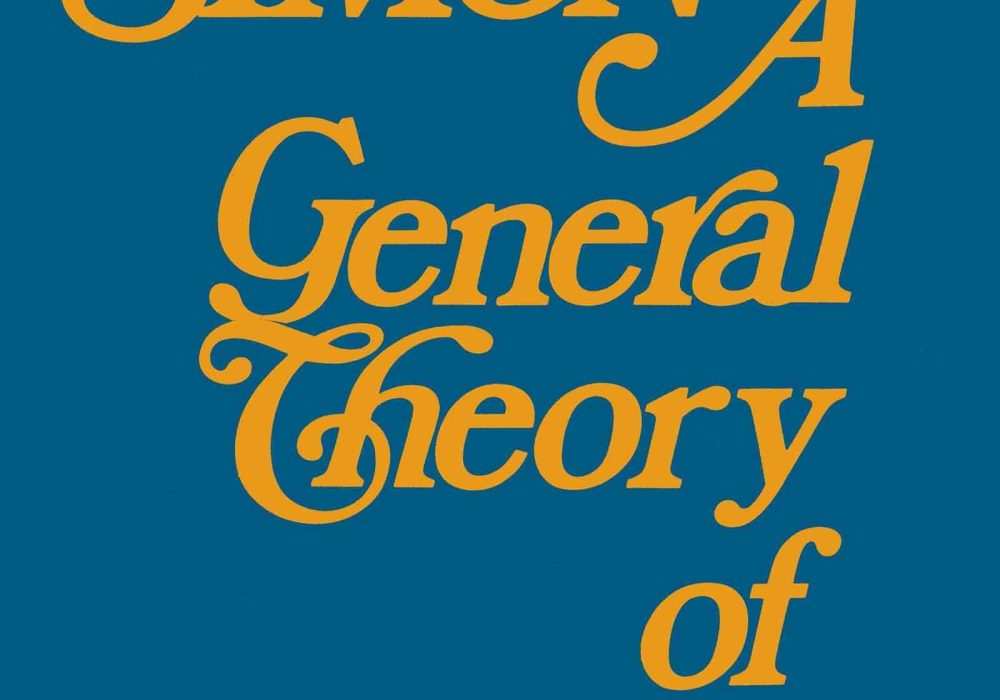REGISTER HERE
Open to current students and faculty. Copies of the book A General Theory of Authority (University of Notre Dame Press, 1980) will be provided for those who register. Professor Hittinger will also give a lecture on October 9 on “What St. Benedict Taught the Dark Ages: His and Ours.”
Yves Simon (1903-1961) was a neo-scholastic philosopher who distinguished himself chiefly for his work in moral and political philosophy. A student of Jacques Maritain in Paris, in 1938 he accepted a visiting position at the University of Notre Dame where he was stranded after the outbreak of WWII. In 1948 he became a member of the Committee on Social Thought at the University of Chicago. Today he is perhaps best remembered and referenced for his work on the nature and functions of authority, a topic that he traversed three times: The Nature and Function of Authority (1940), Philosophy of Democratic Government (1951) based on his Walgreen Lectures at the University of Chicago (1948), and A General Theory of Authority (1962), published a year after his death. Why three times? The simple answer is that he was a meticulous philosopher and therefore he endeavored to get his account just right. Think for example of John Rawls’s multiple revisions of his theory of justice.
But it was also an imperative of his time and place. A neo-scholastic philosopher in the mid-20th century had to account for rapidly changing social and political conditions that made it awkward to defend such basic terms of art as authority and common good. The scholastic tradition had to reckon with the fact that the Catholic appropriation of the perennial philosophy seemed to side with the claims of authority against claims for liberty on a spectrum of social issues – from politics to family and religion. After the rise of totalitarianism and the disaster of two world wars, the claims for liberty were quite insistent and culturally ascendant. The year of Simon’s Walgreen Lectures witnessed the U.N. Declaration on Human Rights and the global process of decolonization, both of which underscored the principle of self-determination over and against more traditional kinds of authority. Standard liberal accounts of authority for the most part were content to ground authority in theories of consent, based on contractual understandings of consent to a utility – a resource-saving device for enhancement of individual choice. This was a one-dimensional account of the function of authority, but it had the advantage of comporting with the expectation that public powers serve and enhance individual liberty. This was the challenge Simon faced in putting forward a more robust account of authority.
SCHEDULE
1:30 welcome, coffee and tea
2:00 first session
3:30 break
3:45 second session
5:15 reception
SYLLABUS
FIRST SESSION (2:00-3:30)
Initial Presentation (30 minutes)
- The issue of authority as Simon found it after WWII.
- Neo-scholastic problems.
- General Theory: Preview of the Main Question, the Main Definition.
Readings, GTA: Chs. 1 (and 5), 2; Thomas Aquinas, S.t. I, 96.4.
Discussion:
The “bad name of authority,” not altogether mistaken? Is the bad name due to philosophical misunderstandings, or to the frame and behavior of institutions, or to the lived experience of modern peoples?
Distinction between law and authority (20, 48 n.11). Does it work in favor of his general theory?
Look carefully at four points that appear constitute the main chassis for his position:
- Essential and accidental functions of authority (20-22).
- Partnership vs common action (29-33, and the coach-driver 135).
- The essential function and the scenario of a multitude without deficiencies (37-47, handout S.t. I, 96.4).
- The distinction between formal and material intention of a common good (57-65) – is he grappling with the issue of subsidiarity?
SECOND SESSION (3.45-5.15)
Initial Presentation (15 minutes).
- Recapitulation and a few remarks on authority and theoretical knowledge.
Readings, GTA, Chs. 3 and 4.
Discussion:
An authoritative “witness” does not, all else being equal, require the power to give orders and demand obedience (84-87). The authority of a witness presupposes some kind of deficiency in the knower, for it is substitutional (remedial) (93). In the practical domain, both essential and accidental functions of authority have as their end a (social) common good. Does he now suggest a function of authority in theoretical matters that does not have a common good, or “essential” function as its end?
Perhaps the key to that question is his discussion of liberalism – freedom of thought as a “sociological agnosticism” that’s normative rather than merely prudential. (102-109, especially at 110-111). Perhaps his anticipation of Rawls’s Political Liberalism (1993)?
Simon regards philosophy as corrupted once it deliberately aims at winning social consensus (113-115). This is a point that deserves some reflection. Yet in “Truth and Community” (115-131) he wants to affirm that the search for truth is related to what is “fundamental in human sociability.” That would be communion. But social communion depends upon some kind of intellectual and spiritual consensus that serves common action (127).
Is Chapter 3 somehow the core of Simon’s effort in GTA? This is the material that he didn’t treat quite so explicitly in previous treatises on authority.
Chapter 4 reworks the preceding chapters. What difference does Chapter 3 make to this restatement of the functions of authority?

